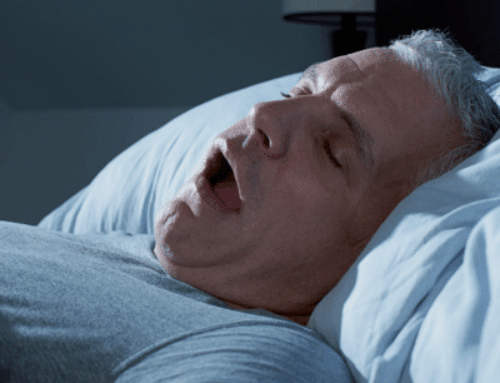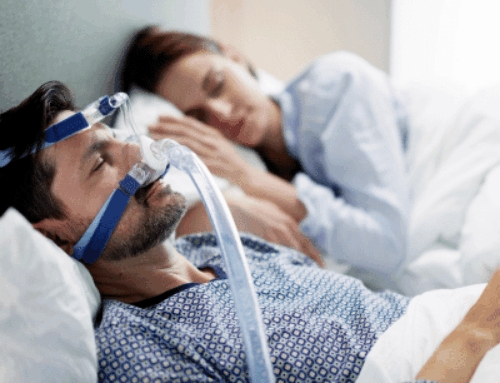 Maintaining proper balance is crucial for daily activities such as walking, standing and even sitting. However, various conditions can disrupt the body’s equilibrium, leading to balance disorders. At Virginia ENT, we specialize in diagnosing and treating conditions affecting the ear, nose and throat, including balancing disorders like vertigo. In this blog post, we’ll explore the causes of balancing disorders, explain diagnostic procedures and discuss available treatments to help our patients in Henrico, Prince George, Mechanicsville, North Chesterfield and Richmond, VA regain their sense of balance.
Maintaining proper balance is crucial for daily activities such as walking, standing and even sitting. However, various conditions can disrupt the body’s equilibrium, leading to balance disorders. At Virginia ENT, we specialize in diagnosing and treating conditions affecting the ear, nose and throat, including balancing disorders like vertigo. In this blog post, we’ll explore the causes of balancing disorders, explain diagnostic procedures and discuss available treatments to help our patients in Henrico, Prince George, Mechanicsville, North Chesterfield and Richmond, VA regain their sense of balance.
Understanding Balance Disorders
Balance disorders encompass a range of conditions that affect the body’s ability to maintain stability and equilibrium. These disorders can manifest as dizziness, lightheadedness, vertigo, or a feeling of unsteadiness. Some of the most common balance disorders include:
- Vertigo: Vertigo is a sensation of spinning or whirling, often accompanied by nausea, vomiting and a loss of balance. It can be caused by problems in the inner ear, such as benign paroxysmal positional vertigo (BPPV), vestibular neuritis, or Meniere’s disease.
- Labyrinthitis: Labyrinthitis is an inflammation of the inner ear, typically caused by a viral infection. This can lead to symptoms such as vertigo, diminished hearing and ringing in the ears, known as tinnitus.
- Meniere’s Disease: Meniere’s disease is a long-term condition affecting the inner ear, marked by recurrent episodes of vertigo, varying degrees of hearing loss, tinnitus and a sensation of fullness or pressure in the ear.
- Vestibular Migraine: Vestibular migraine is a type of migraine headache that can cause vertigo or a sensation of motion sickness, often accompanied by headache, light sensitivity and sound sensitivity.
Causes of Balance Disorders
Balancing disorders can be caused by various factors, including:
- Inner Ear Problems: Dysfunction of the inner ear, such as inflammation, infection, or damage to the vestibular system, can disrupt balance and lead to symptoms of dizziness or vertigo.
- Neurological Conditions: Disorders affecting the brain or nervous system, such as multiple sclerosis or stroke, can interfere with the body’s ability to maintain balance.
- Medications: Certain medications, such as those used to treat high blood pressure, anxiety, or seizures, may have side effects that affect balance or cause dizziness.
- Age-Related Changes: As we age, changes in vision, muscle strength and sensory perception can increase the risk of balancing disorders.
Diagnosis of Balance Disorders
Diagnosing balancing disorders often involves a comprehensive evaluation, which may include:
- Medical History: Your doctor will review your medical history, including any symptoms you may be experiencing and any underlying health conditions.
- Physical Examination: A physical examination may be performed to assess balance, coordination and neurological function.
- Vestibular Testing: Vestibular tests, such as electronystagmography (ENG), videonystagmography (VNG), or rotary chair testing, may be conducted to assess inner ear function and diagnose specific vestibular disorders.
- Imaging Studies: In some cases, imaging studies such as magnetic resonance imaging (MRI) or computed tomography (CT) scans may be ordered to evaluate the structure of the inner ear or detect any abnormalities in the brain.
Treatment Options for Balance Disorders
Treatment for balance disorders depends on the underlying cause and may include:
- Medications: Medications such as antihistamines, antiemetics, or vestibular suppressants may be prescribed to alleviate symptoms of dizziness or vertigo.
- Vestibular Rehabilitation: Vestibular rehabilitation therapy (VRT) is a specialized exercise program designed to improve balance and reduce symptoms of dizziness or vertigo by promoting central nervous system compensation for vestibular deficits.
- Canalith Repositioning Maneuvers: Canalith repositioning maneuvers, such as the Epley maneuver or the Semont maneuver, are specific exercises used to treat benign paroxysmal positional vertigo (BPPV) by repositioning displaced calcium crystals (otoconia) in the inner ear.
- Lifestyle Modifications: Making lifestyle changes such as avoiding triggers (e.g., caffeine, alcohol, stress), staying hydrated, getting enough sleep and practicing relaxation techniques can help manage symptoms of balancing disorders.
Request Your Appointment in Henrico, Prince George, Mechanicsville, North Chesterfield or Richmond, VA Today
Balancing disorders can significantly impact quality of life and daily functioning. At Virginia ENT, we serve families in the Henrico, Prince George, Hanover and Chesterfield counties. We are dedicated to helping patients effectively manage these conditions and regain their sense of balance. If you are experiencing symptoms of dizziness, vertigo, or unsteadiness, we encourage you to schedule an appointment with one of our experienced ENT specialists. We will perform a thorough evaluation, diagnose the underlying cause of your symptoms, and develop a personalized treatment plan to address your specific needs. Don’t let balance disorders hold you back—request your appointment today to take the first step toward better balance and improved quality of life.





